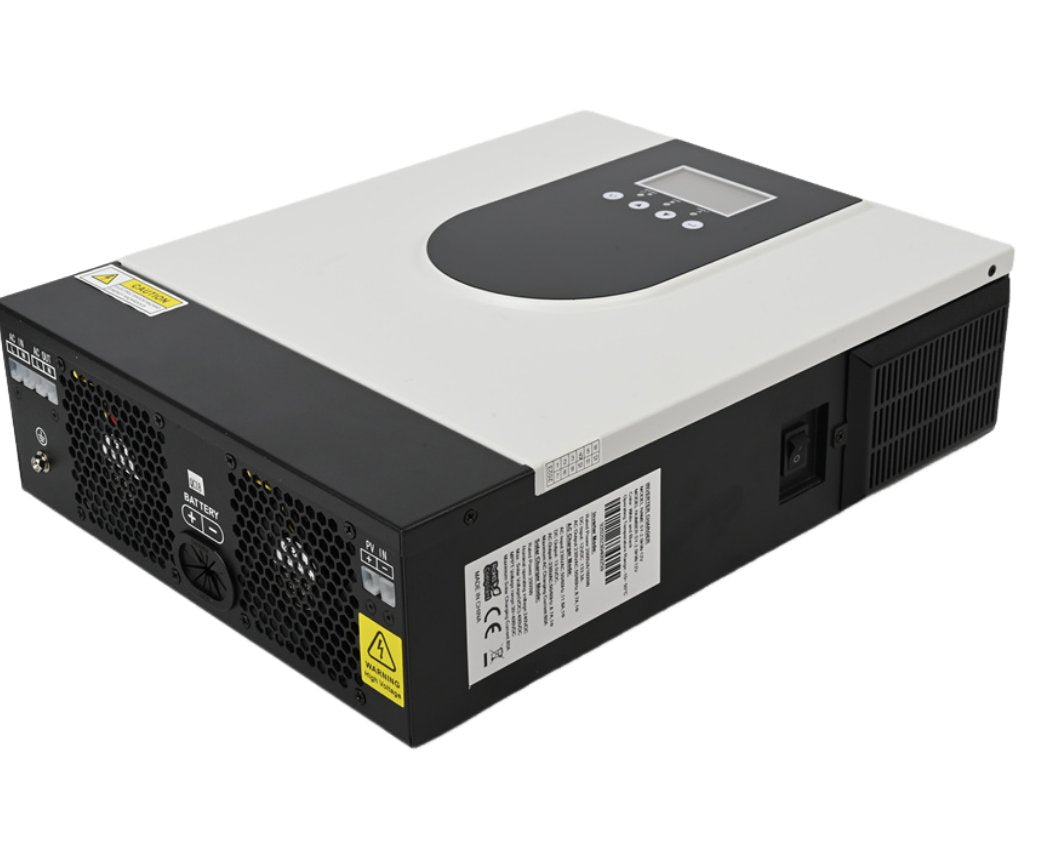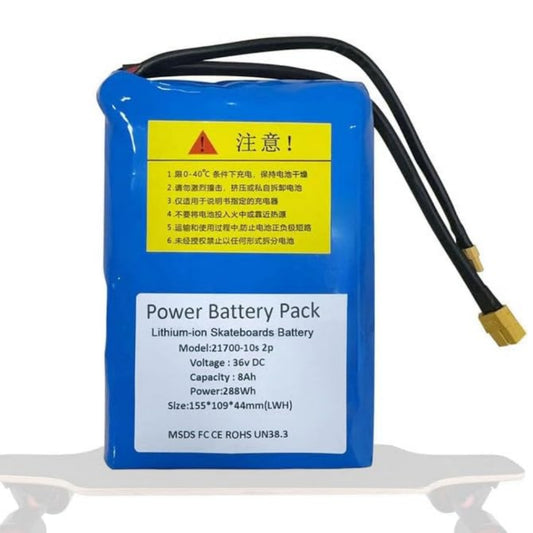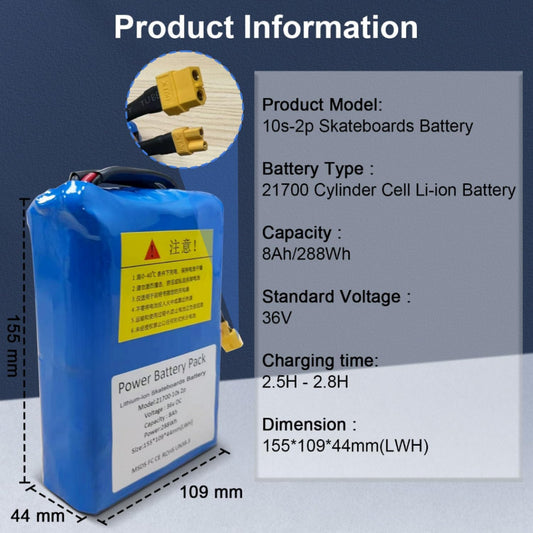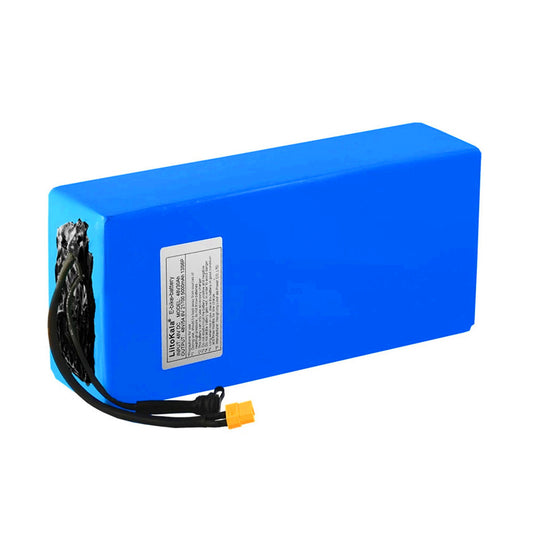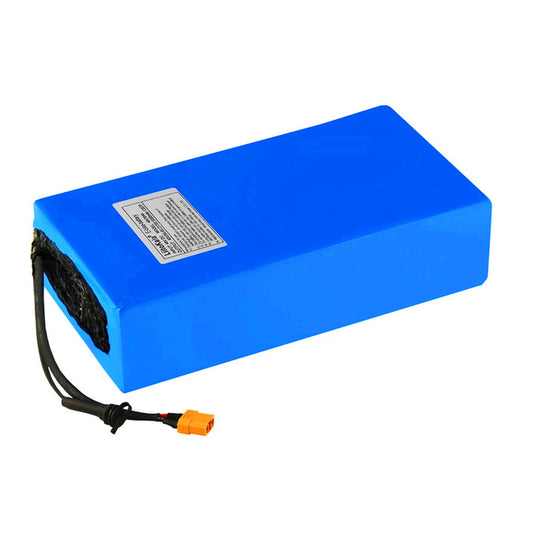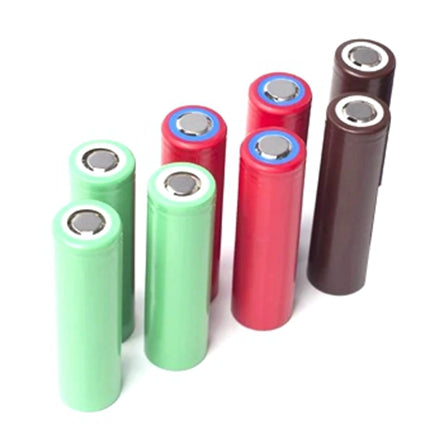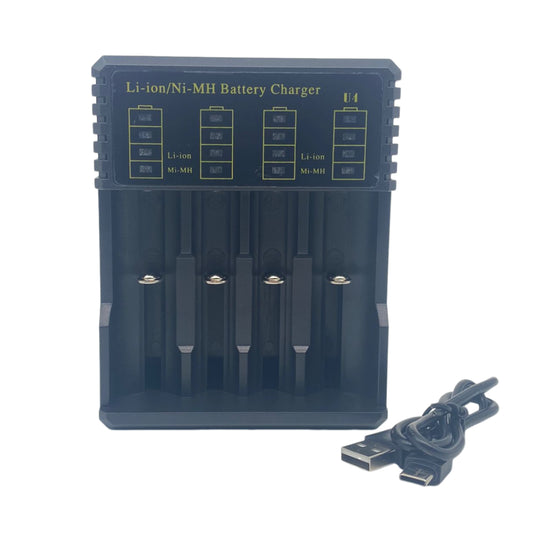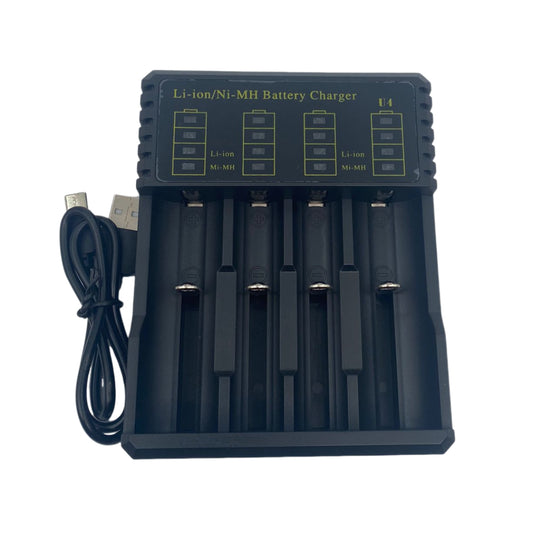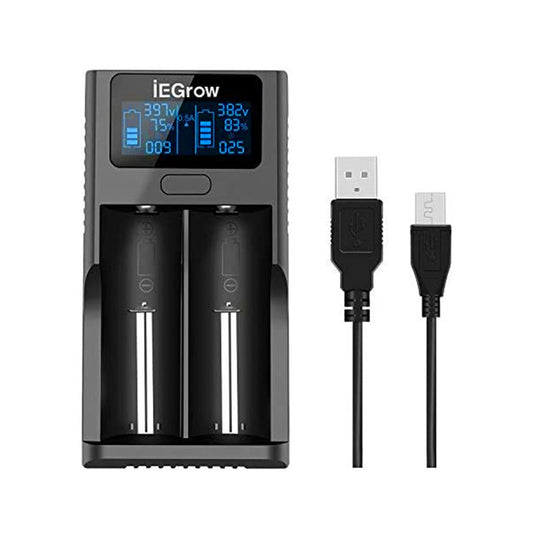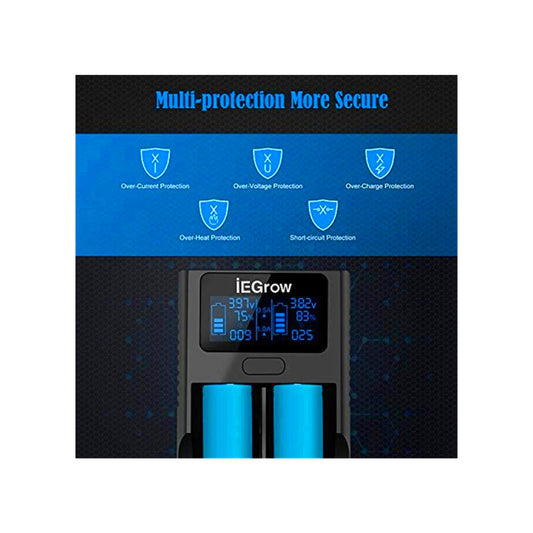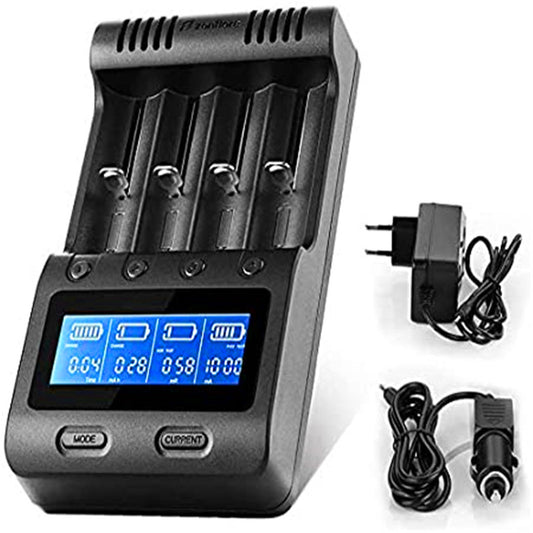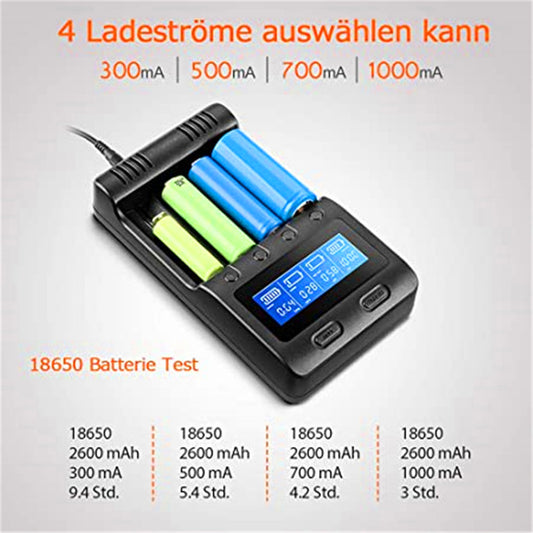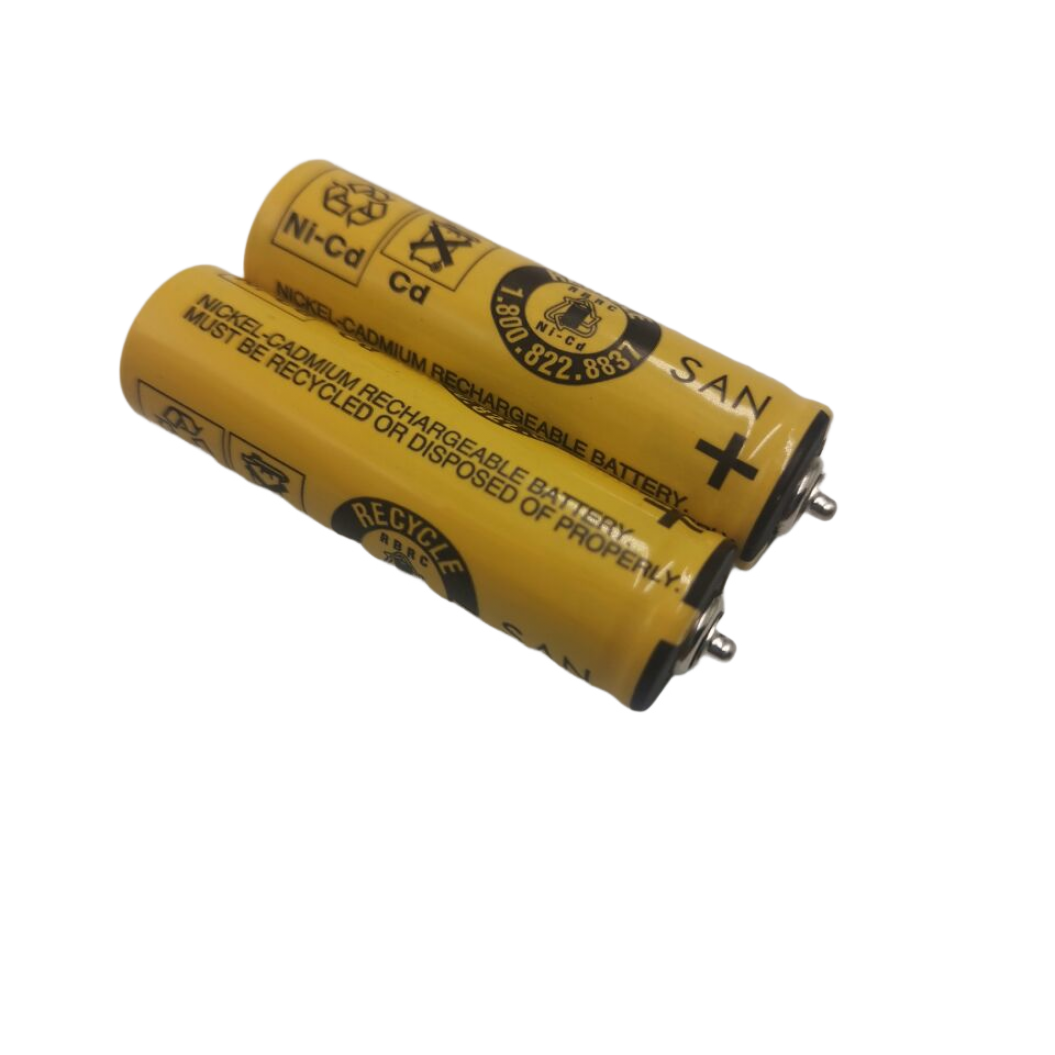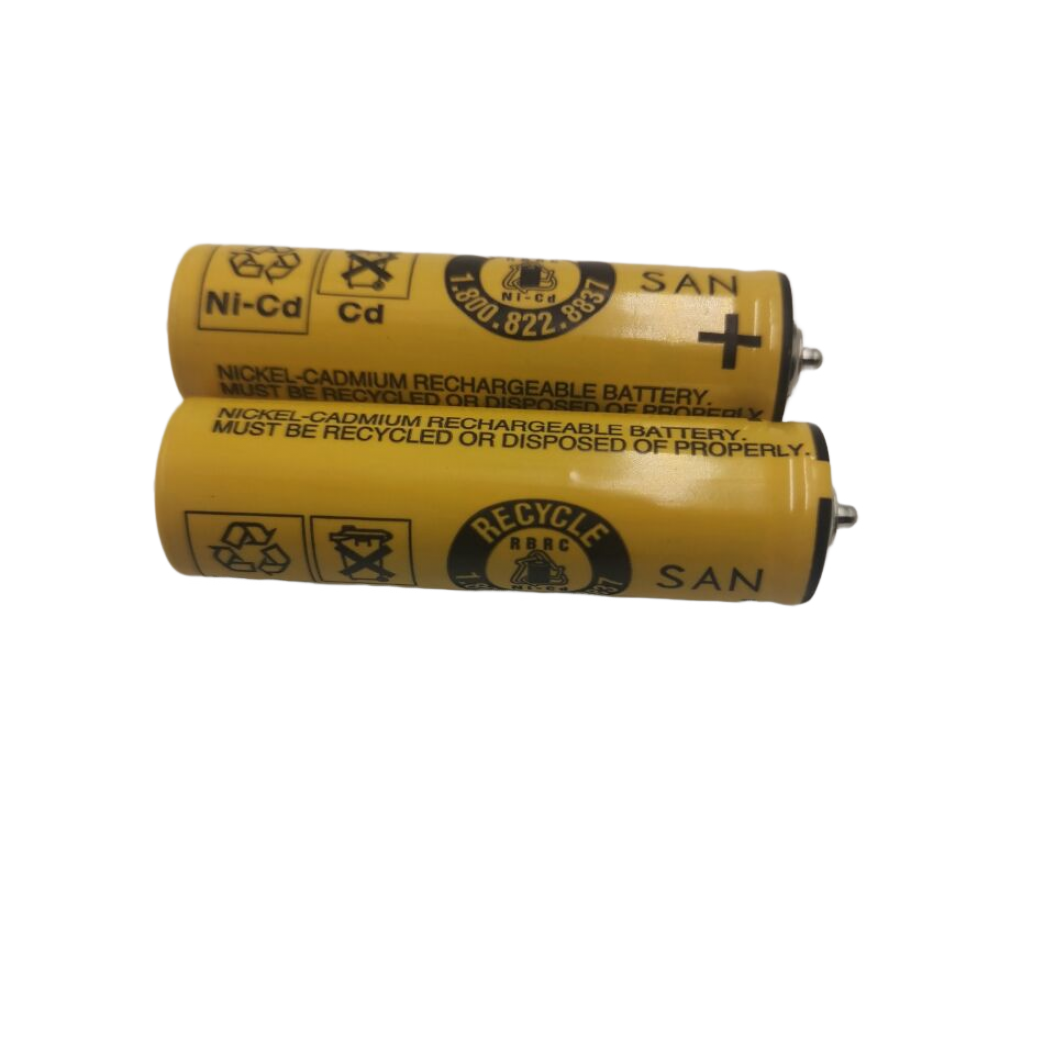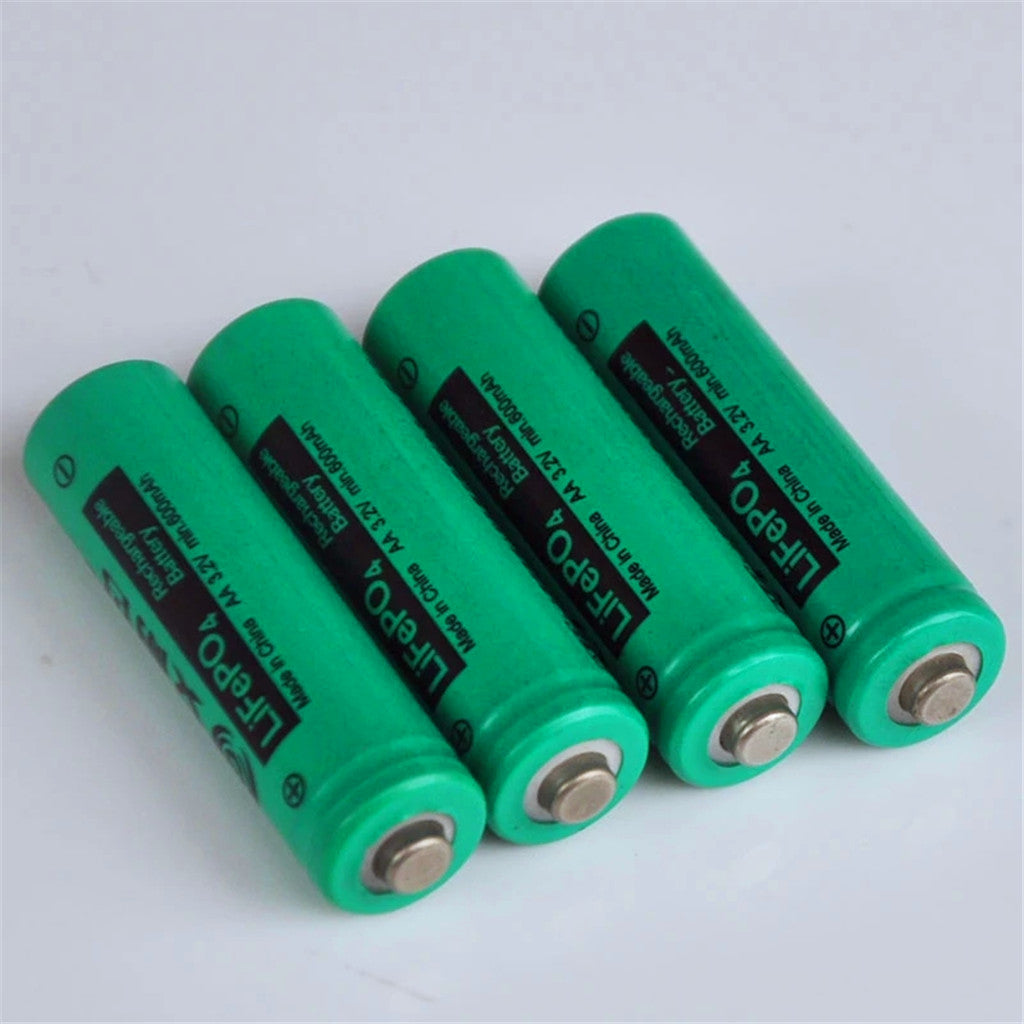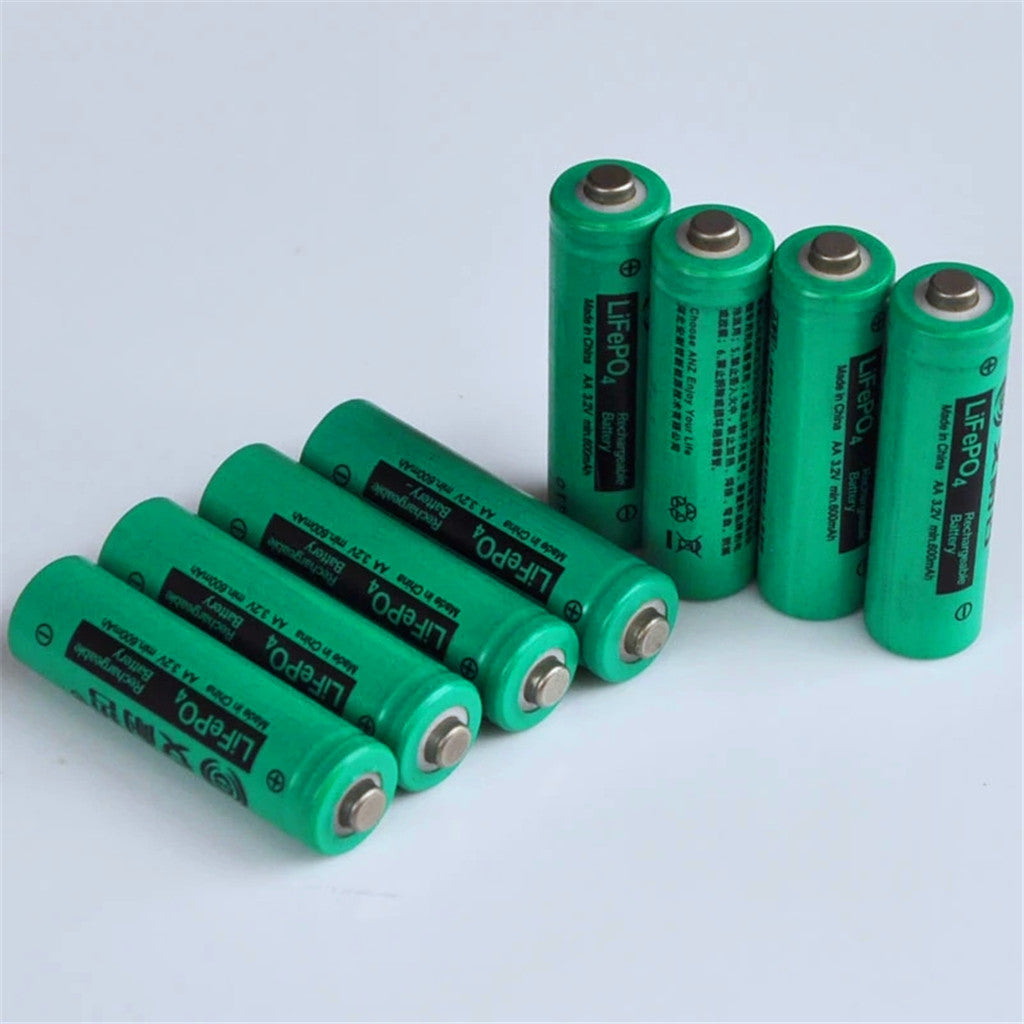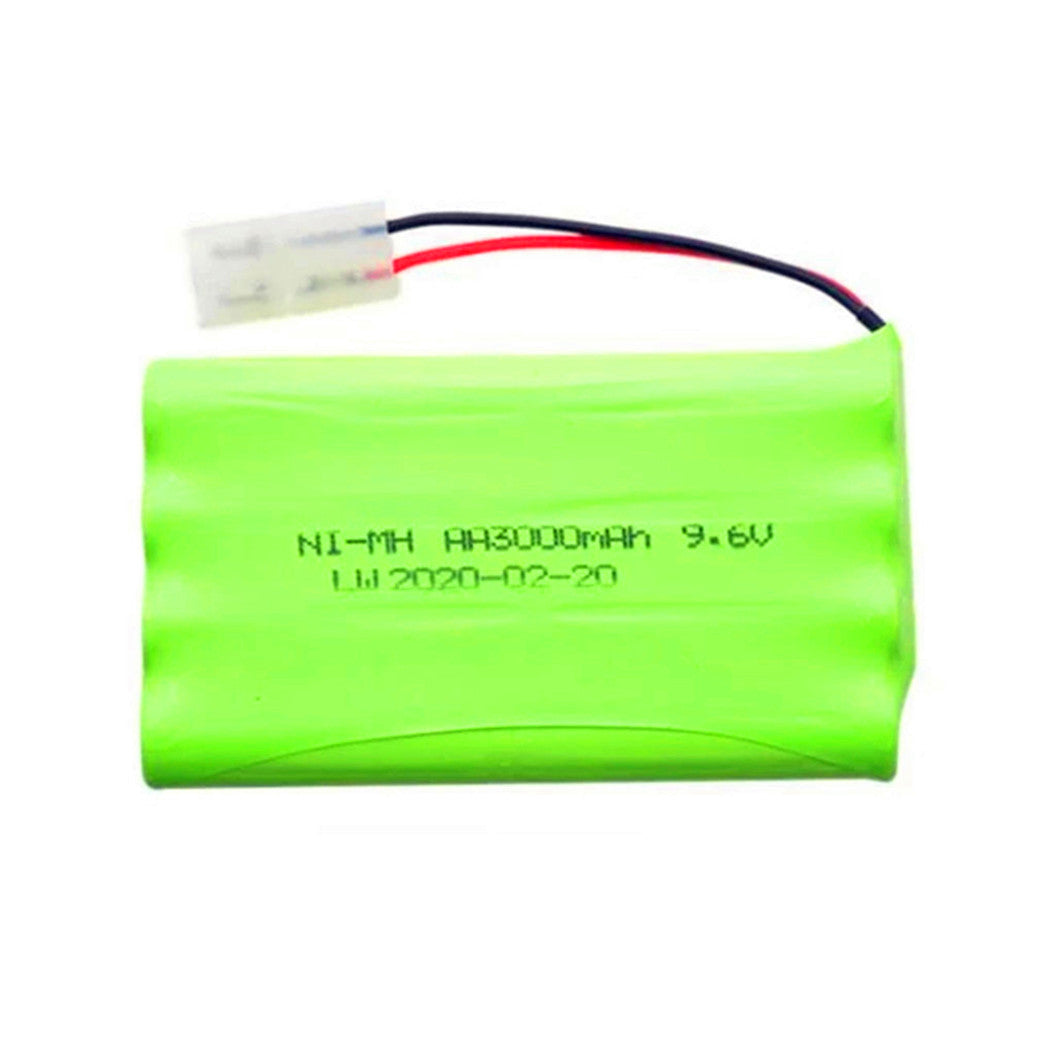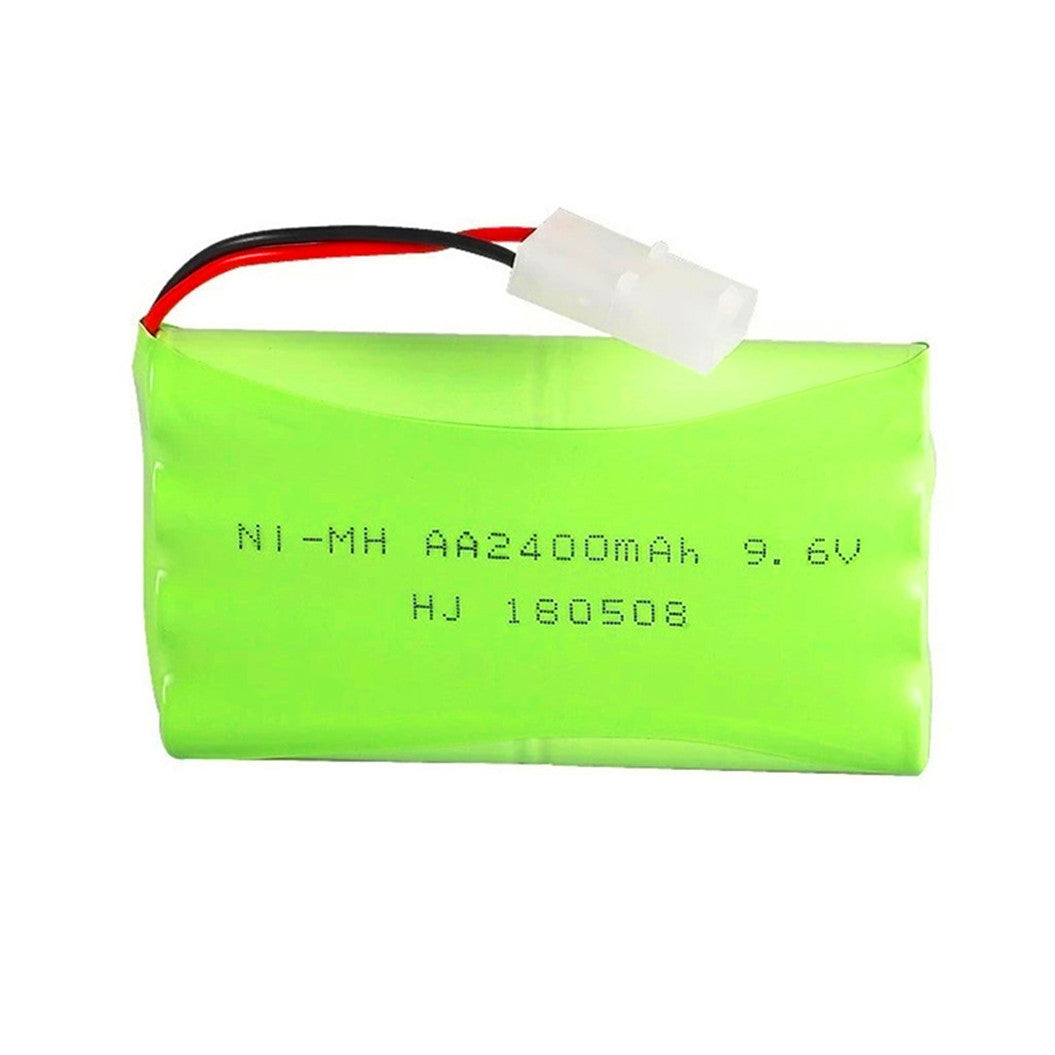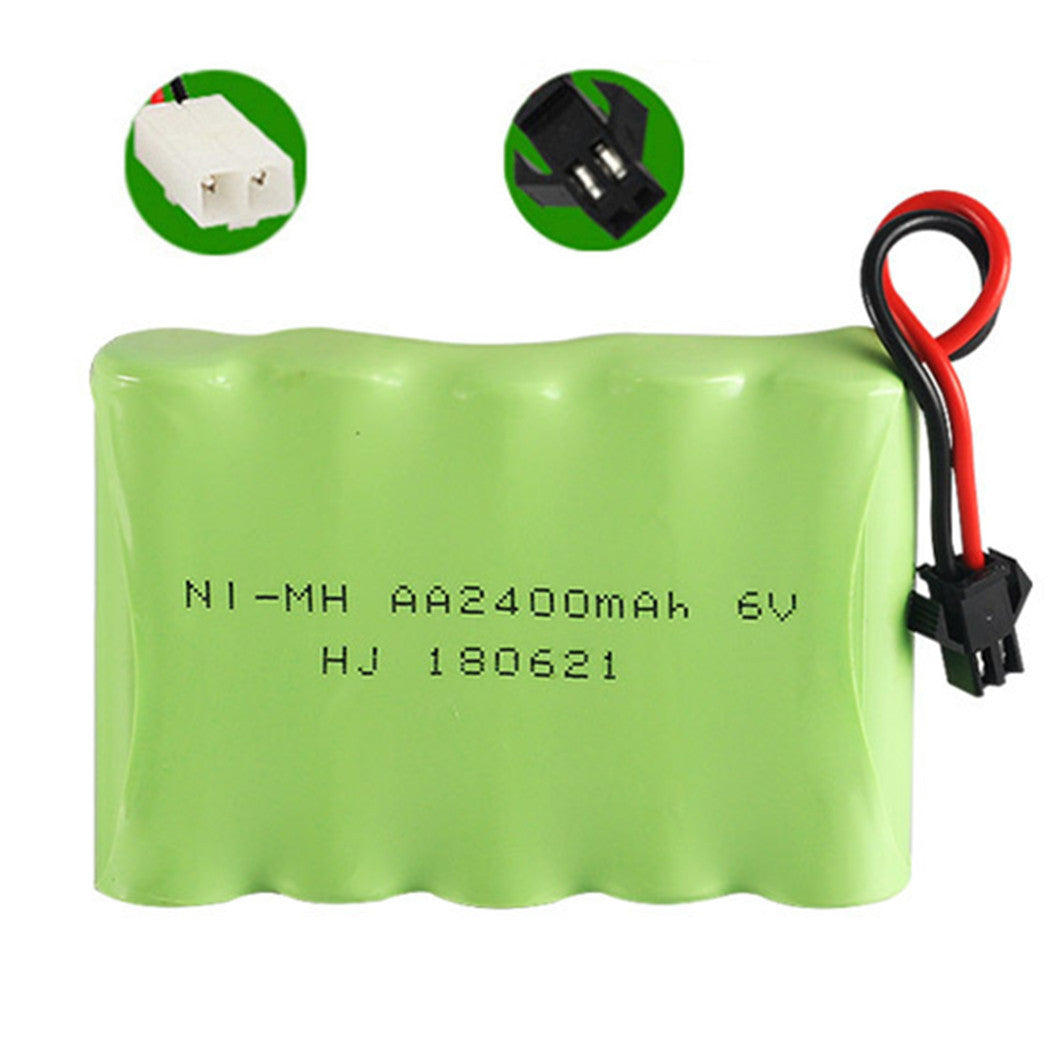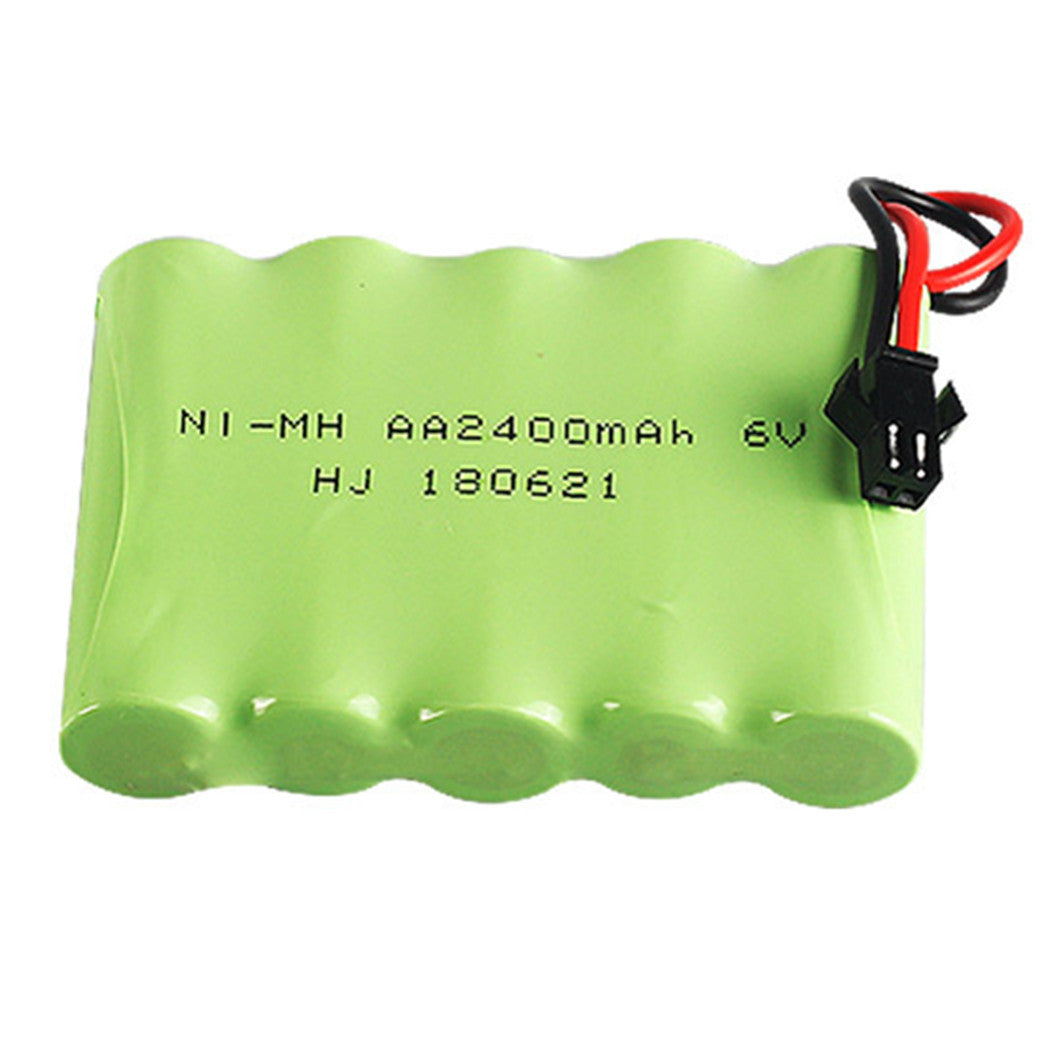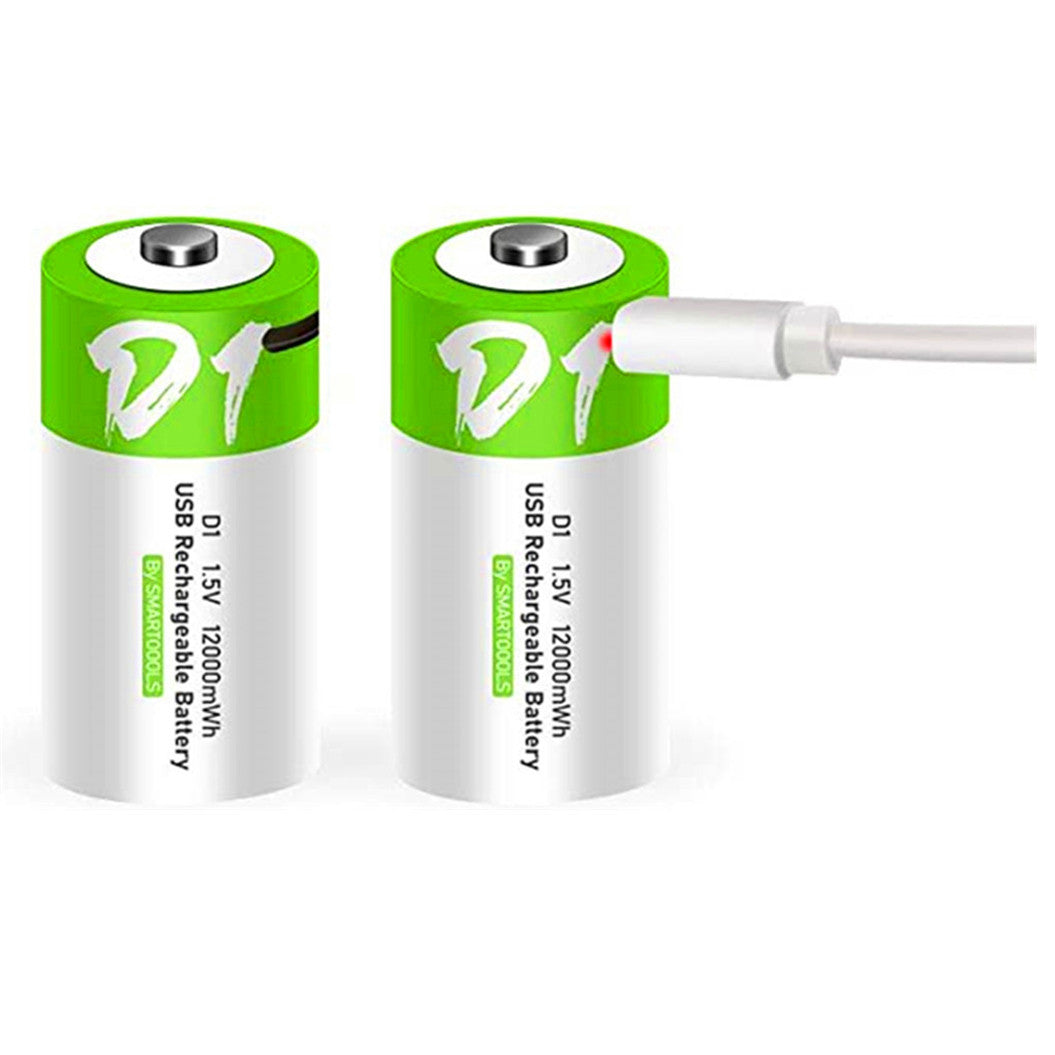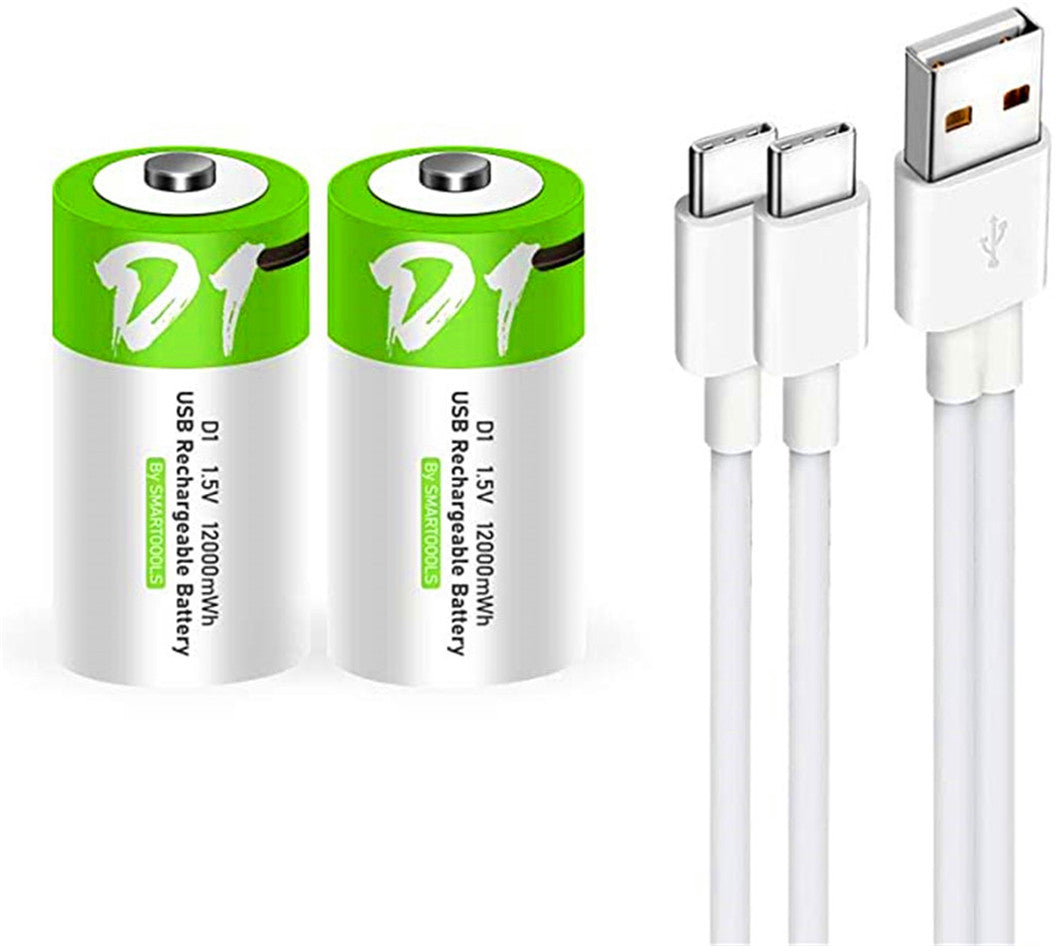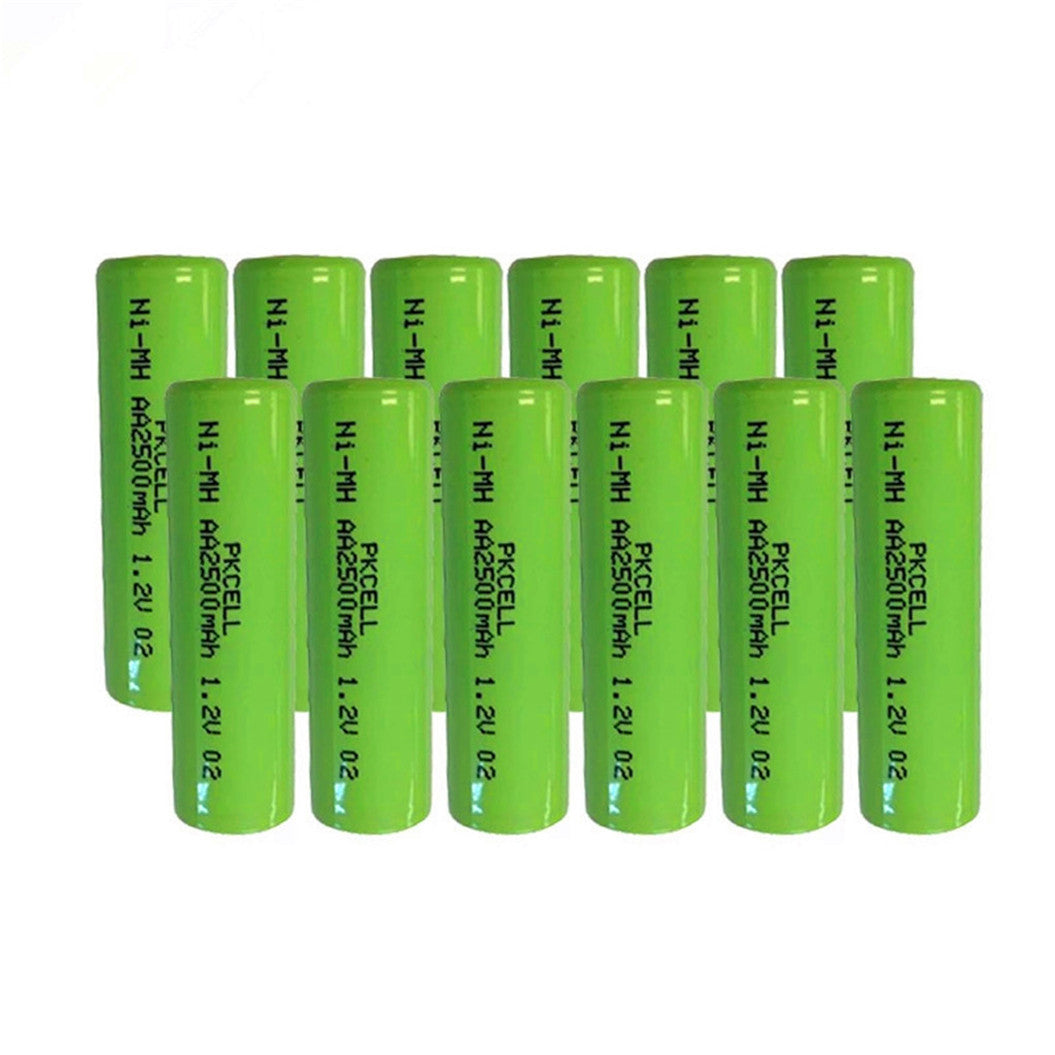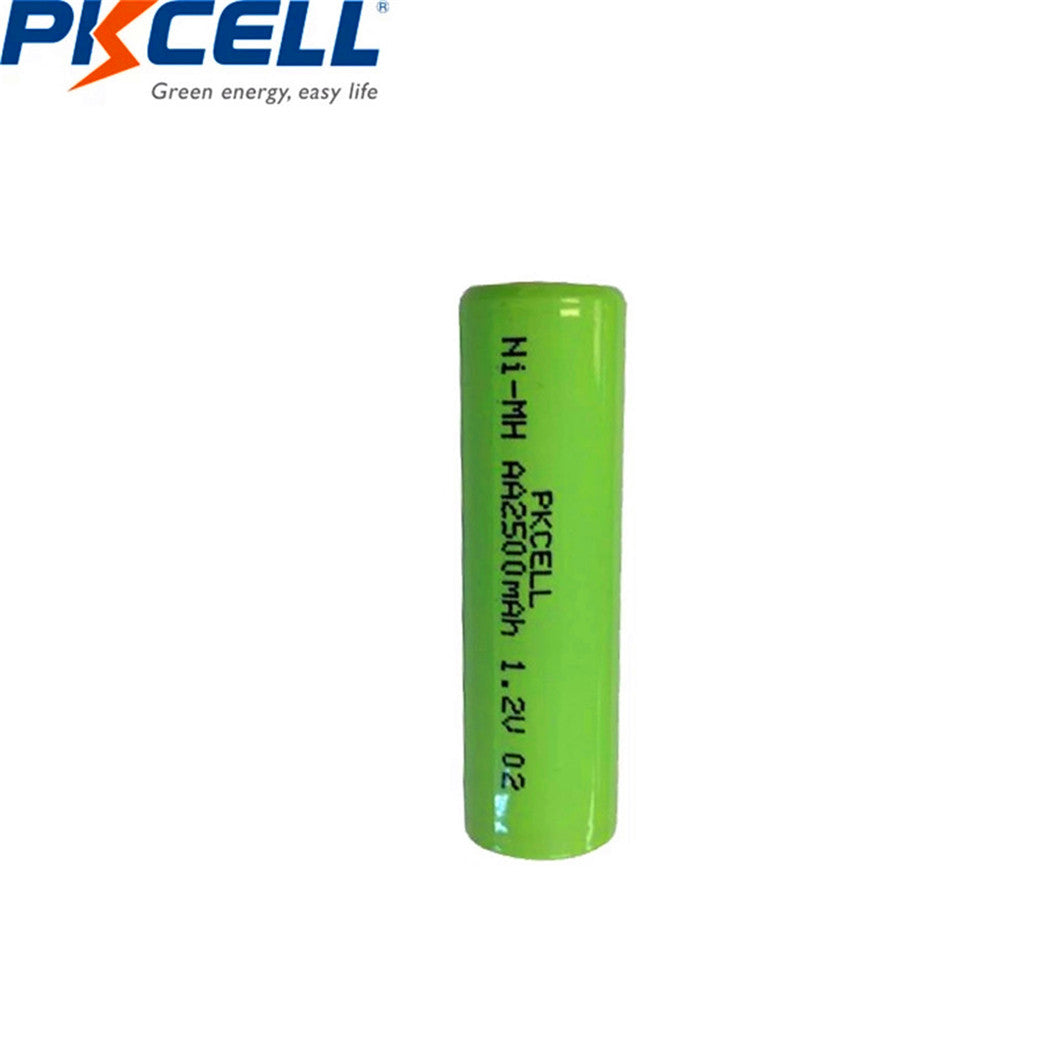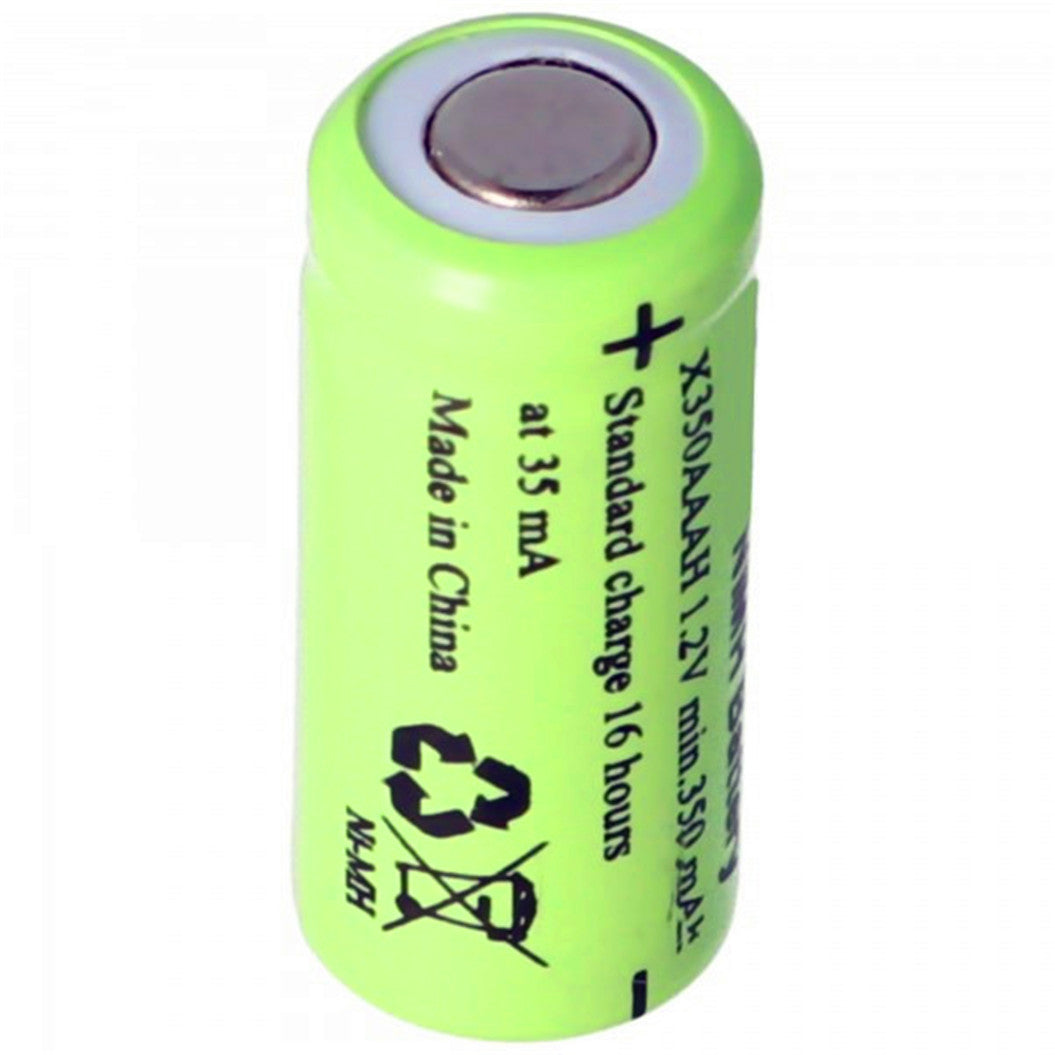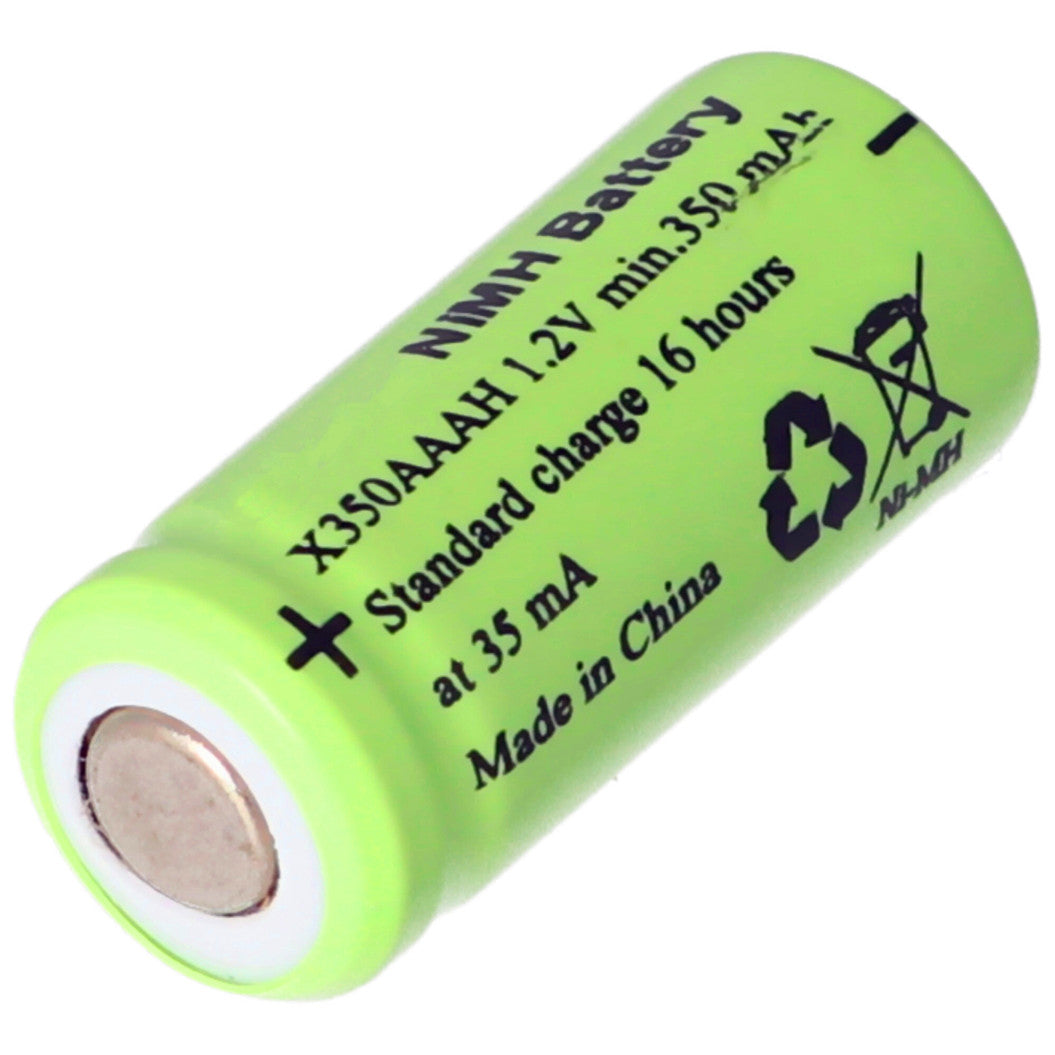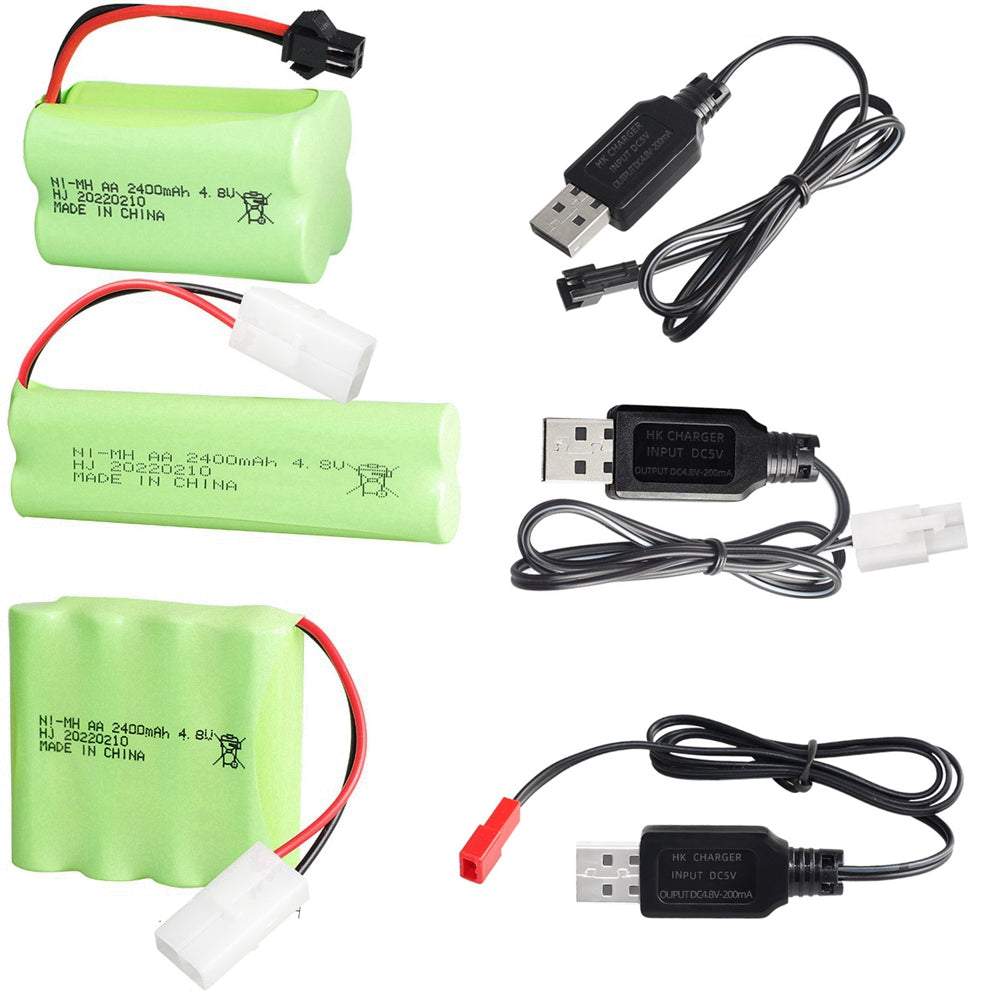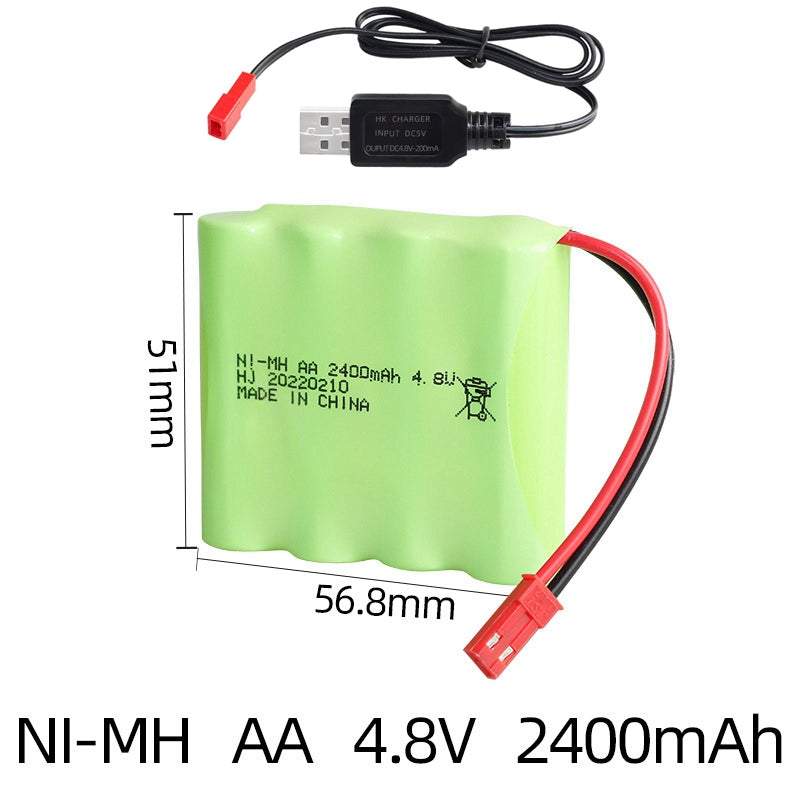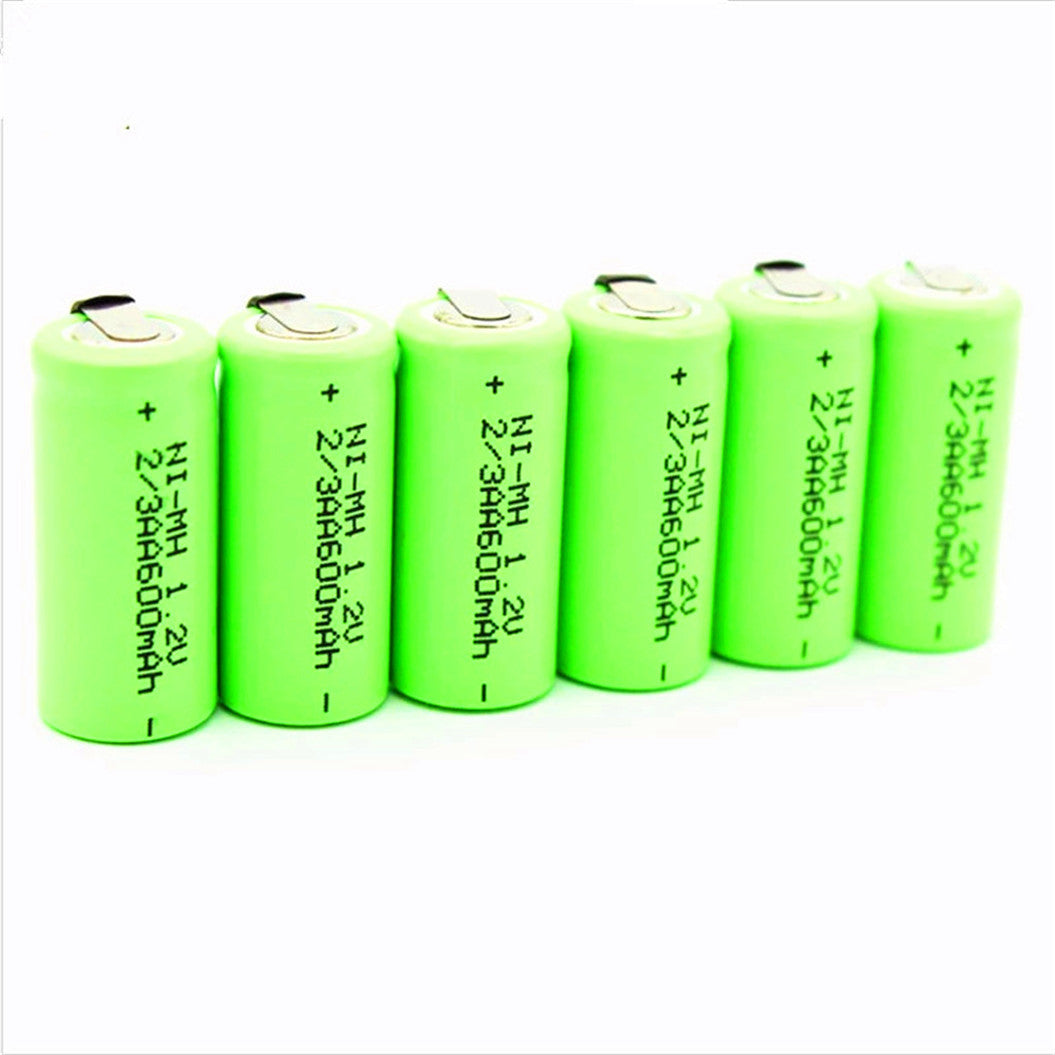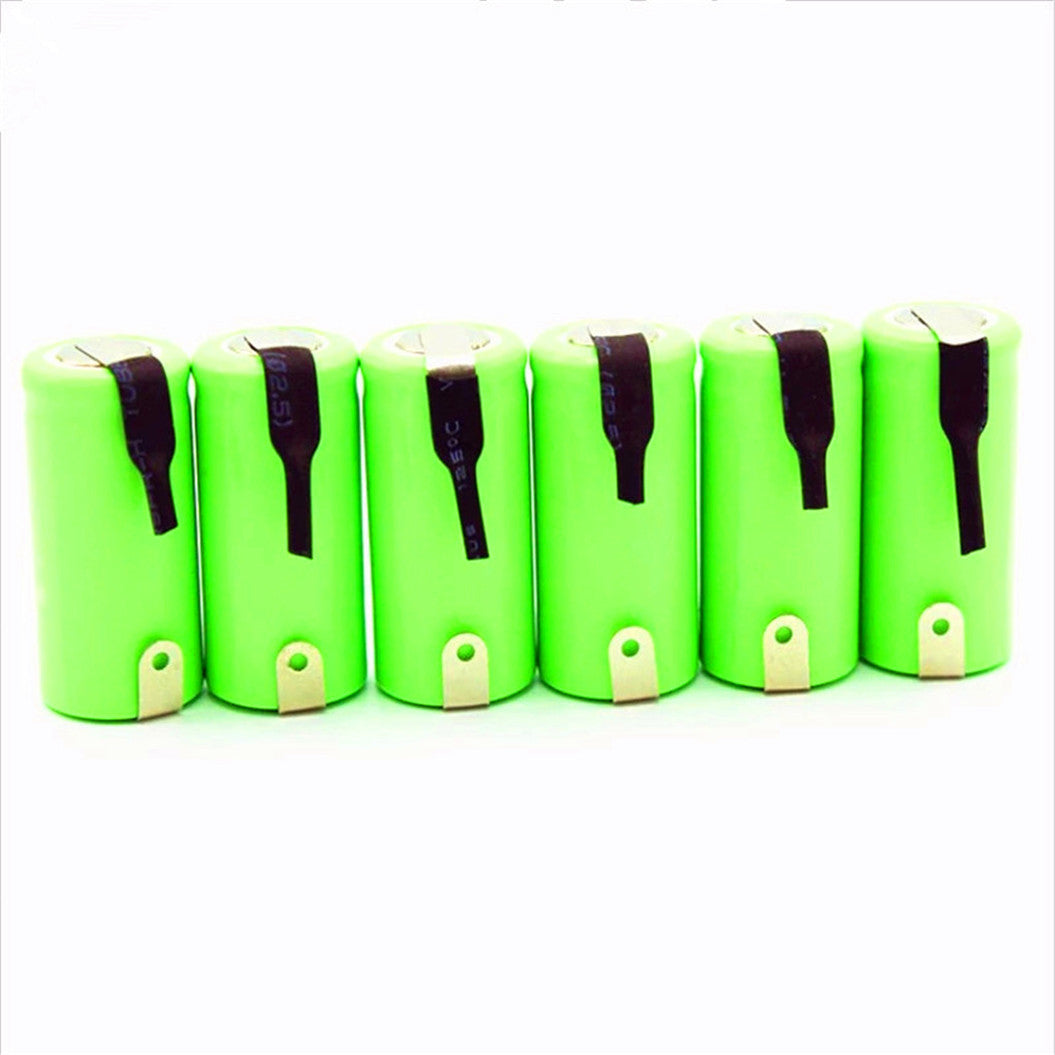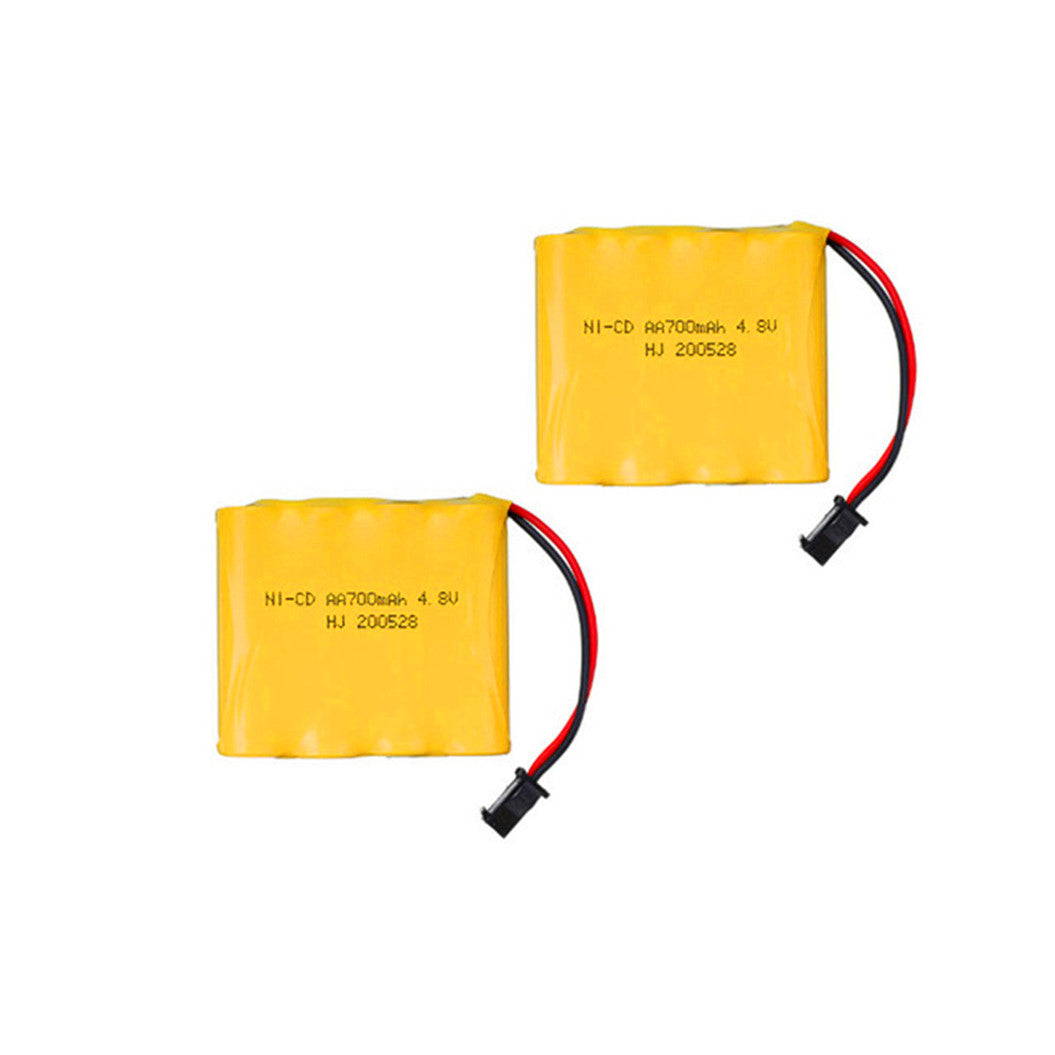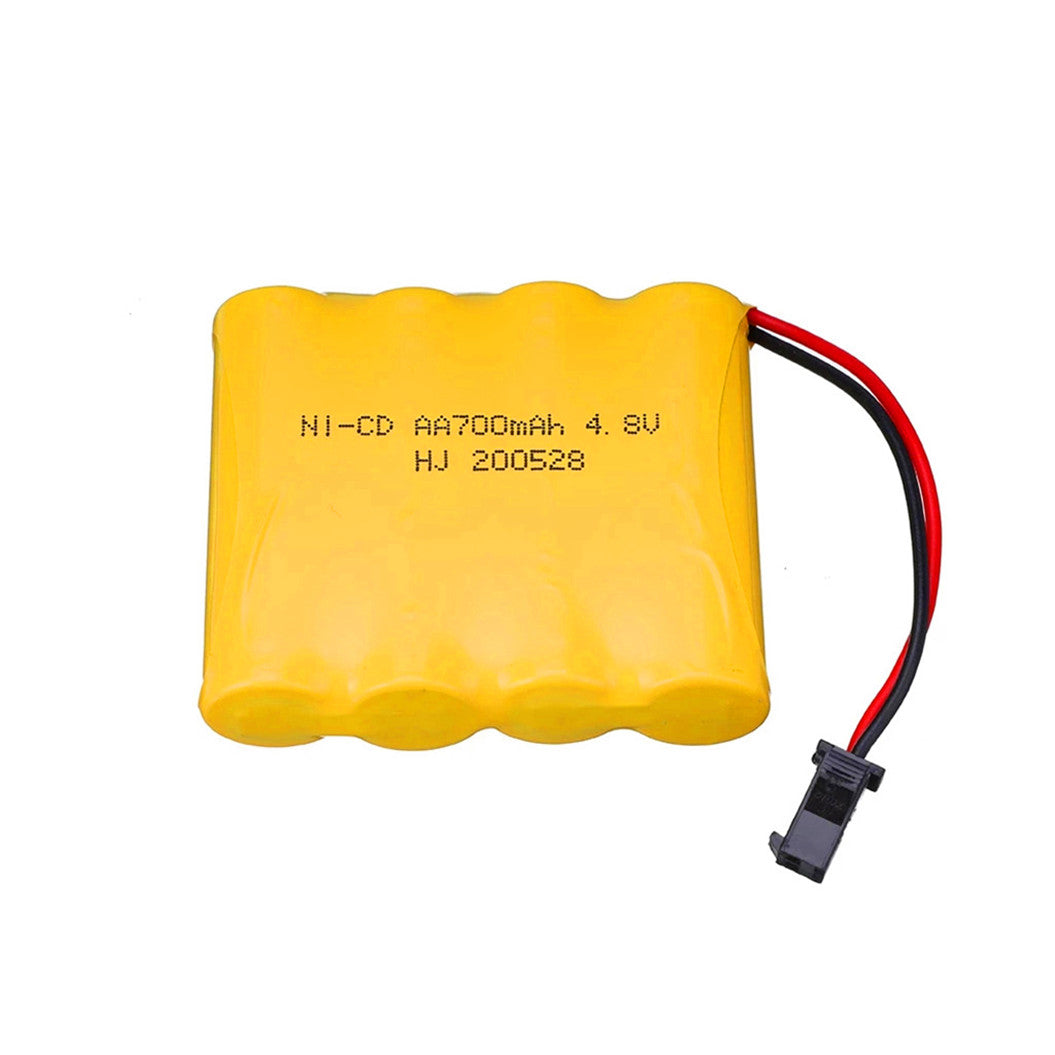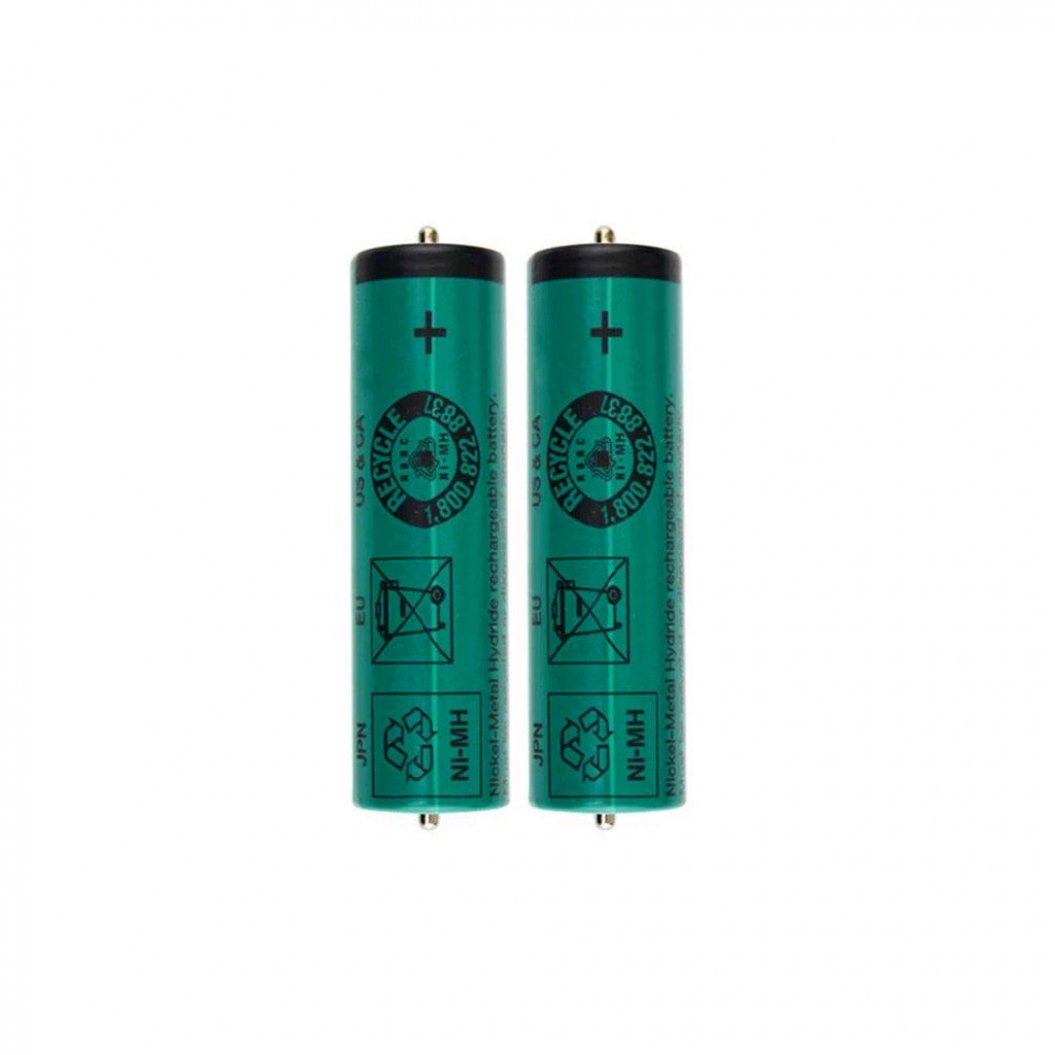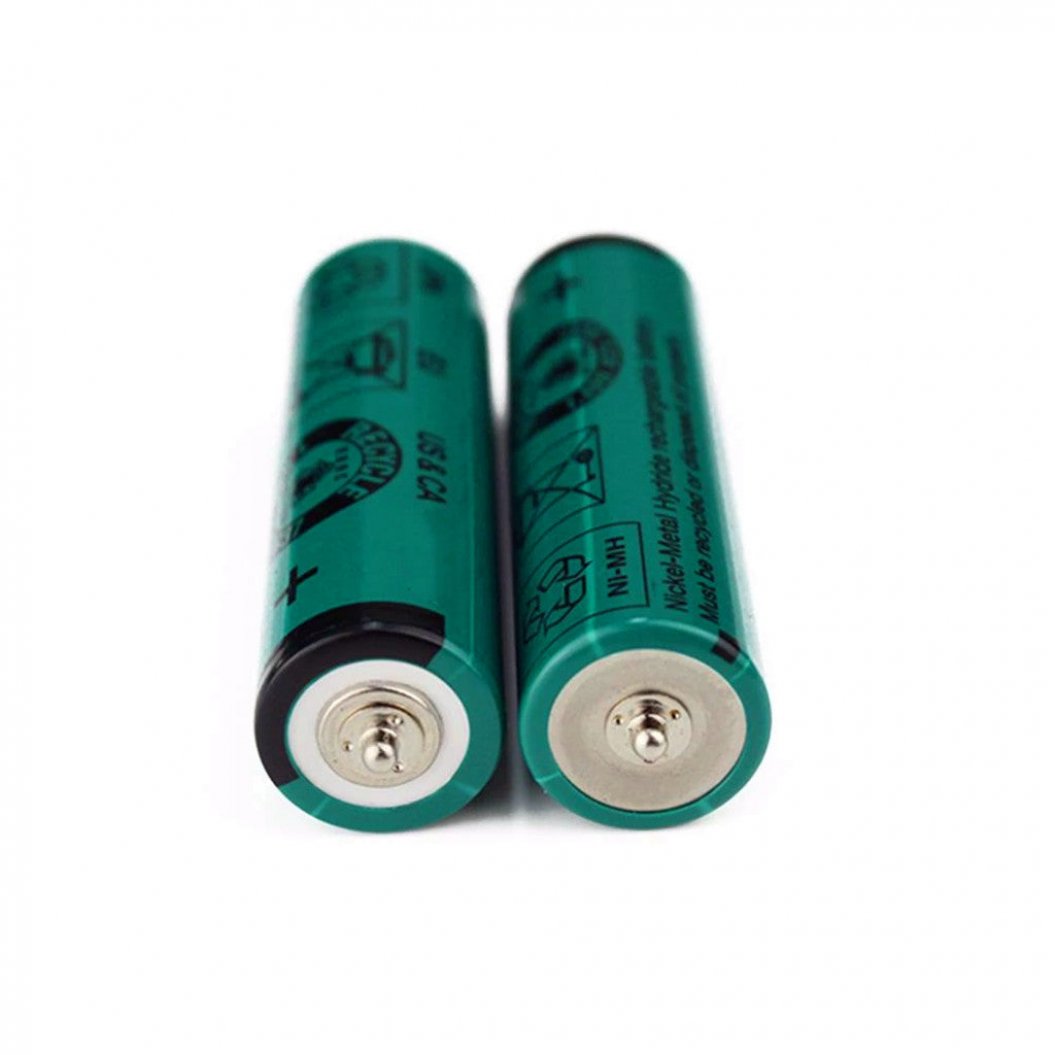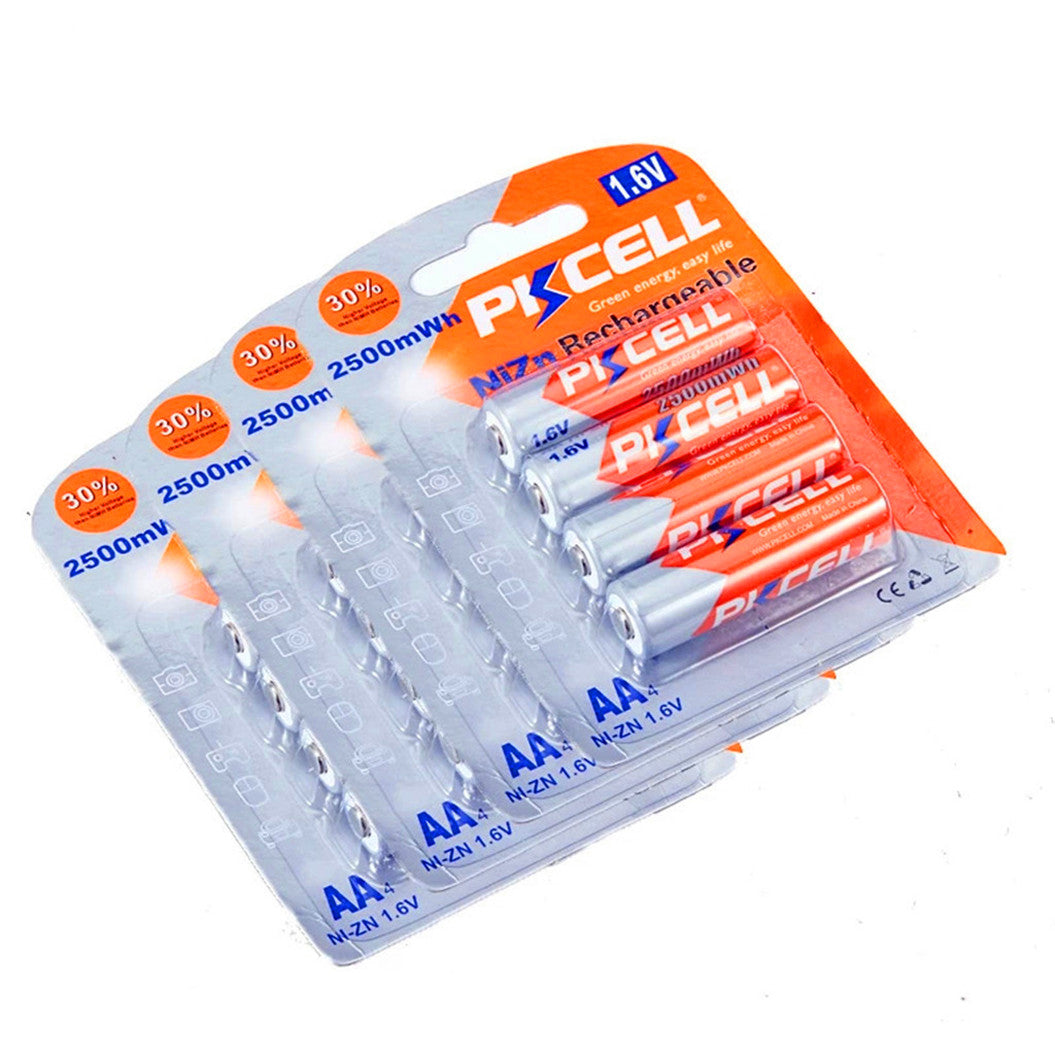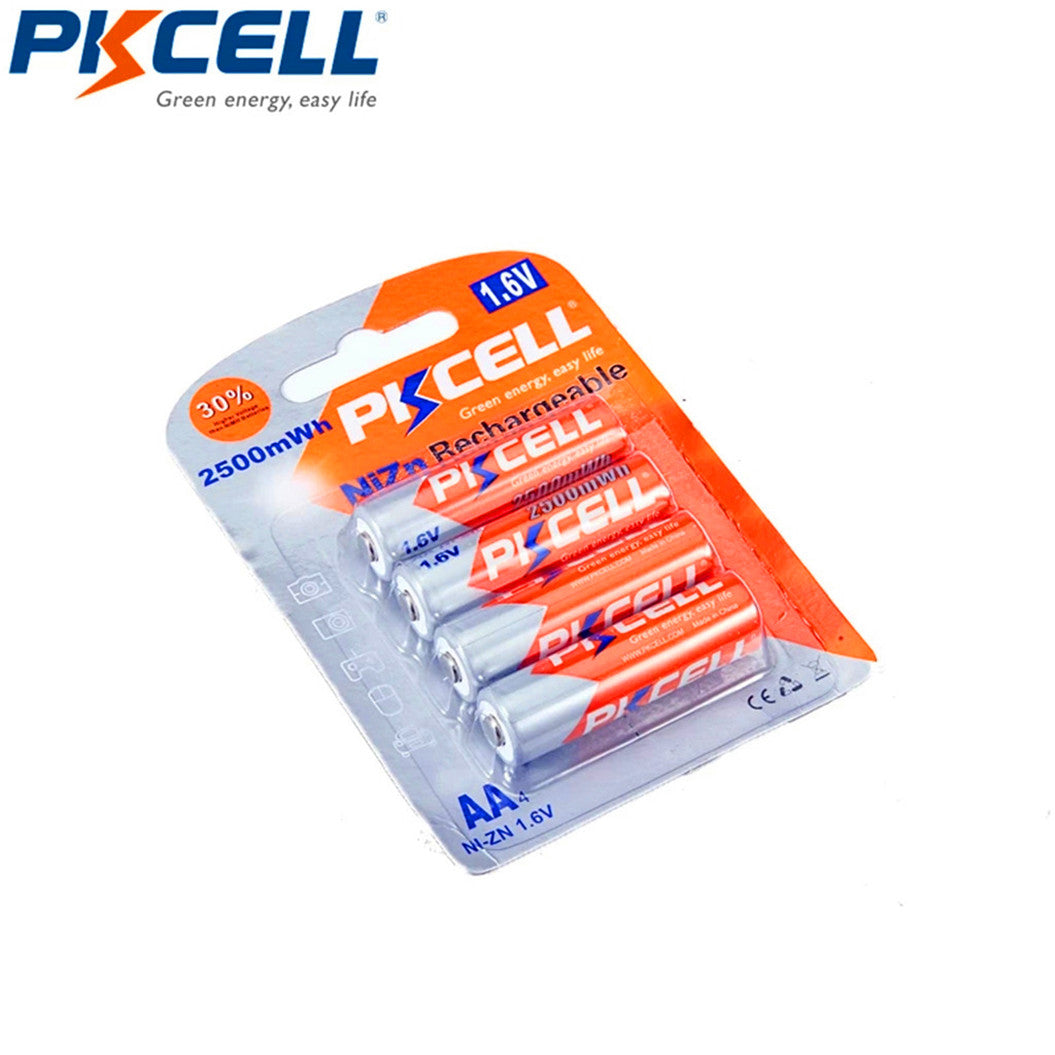-
Proveedor:BATTERYINT
Batería para afeitadora eléctrica Braun HR-AAUV W809, 140, 3000, 5685, 150S-1, 1,2 V, Ni-MH, para FDK, 2 unidades
- Precio habitual
- $20.34
- Precio habitual
-
- Precio de venta
- $20.34
- Precio unitario
- por
Batería para afeitadora eléctrica Braun HR-AAUV... -
Proveedor:BATTERYINT
4 piezas IFR 3,2 V LiFePo4 AA 600 mAh 14500 Batería de iones de litio recargable
- Precio habitual
- $12.99
- Precio habitual
-
- Precio de venta
- $12.99
- Precio unitario
- por
4 piezas IFR 3,2 V LiFePo4 AA 600 mAh 14500 Bat... -
Proveedor:BATTERYINT
Batería recargable AA de 9,6 V Ni-Mh de 700 mAh para dispositivo de seguridad de iluminación de juguetes con control remoto
- Precio habitual
- $11.89
- Precio habitual
-
- Precio de venta
- $11.89
- Precio unitario
- por
Pila recargable AA de 9,6 V Ni-CD de 700 mAh pa... -
Proveedor:BATTERYINT
Batería recargable AA NiMH de 6,0 V y 2400 mAh con conector SM/KET-2P para juguetes RC, automóviles, tanques, robots y barcos
- Precio habitual
- $12.50
- Precio habitual
-
- Precio de venta
- $12.50
- Precio unitario
- por
Batería recargable AA NiMH de 6,0 V y 2400 mAh ... -
Proveedor:BATTERYINT
2 piezas de batería de iones de litio recargable USB-D, 1,5 V, 12000 mWh, batería D recargable, carga rápida de 4 horas, más constante
- Precio habitual
- $22.99
- Precio habitual
-
- Precio de venta
- $22.99
- Precio unitario
- por
2 piezas de batería de iones de litio recargabl... -
Proveedor:BATTERYINT
12 pilas recargables AA NIMH de 1,2 V y 2500 mAh
- Precio habitual
- $23.60
- Precio habitual
-
- Precio de venta
- $23.60
- Precio unitario
- por
12 pilas recargables AA NIMH de 1,2 V y 2500 mA... -
Proveedor:BATTERYINT
Batería NiMH de 1,2 V y 350 mAh para GP35AAAH
- Precio habitual
- $8.38
- Precio habitual
-
- Precio de venta
- $8.38
- Precio unitario
- por
Batería NiMH de 1,2 V y 350 mAh para GP35AAAH I... -
Proveedor:BATTERYINT
Paquete de batería AA NiMH de 4,8 V y 2400 mAh con cargador USB para juguetes de control remoto
- Precio habitual
- $9.99
- Precio habitual
-
- Precio de venta
- $9.99
- Precio unitario
- por
Paquete de batería AA NiMH de 4,8 V y 2400 mAh ... -
Proveedor:BATTERYINT
8 piezas de batería de 1,2 V 600 mAh Ni-Cd nicd para batería azul
- Precio habitual
- $11.99
- Precio habitual
-
- Precio de venta
- $11.99
- Precio unitario
- por
8 piezas de batería de 1,2 V 600 mAh Ni-Cd nicd... -
Proveedor:BATTERYINT
2 piezas de batería recargable AA de Ni-CD de 4,8 V y 700 mAh para barcos y coches de control remoto
- Precio habitual
- $9.99
- Precio habitual
-
- Precio de venta
- $9.99
- Precio unitario
- por
2 piezas Batería recargable AA de Ni-CD de 4,8 ... -
Proveedor:BATTERYINT
2 piezas HR-AAUV W809 Afeitadora eléctrica 140 150S-1 Braun Series Batería de 1,2 V Ni-Mh para FDK
- Precio habitual
- $16.99
- Precio habitual
-
- Precio de venta
- $16.99
- Precio unitario
- por
2 piezas HR-AAUV W809 afeitadora eléctrica 140... -
Proveedor:BATTERYINT
16 pilas de níquel-zinc AA Ni-Zn de 1,6 V y 2500 mWh para cámaras digitales, CD y juegos
- Precio habitual
- $37.55
- Precio habitual
-
- Precio de venta
- $37.55
- Precio unitario
- por
16 pilas de níquel-zinc AA Ni-Zn de 1,6 V y 250...
Demostración 1 -12 de 61 elementos
1. ¿Cuál es la diferencia entre las pilas de litio AA y las pilas alcalinas AA?
Las pilas de litio AA y las pilas alcalinas AA se diferencian principalmente en su composición química, voltaje y rendimiento. Las pilas de litio AA proporcionan energía de mayor duración, son más ligeras y funcionan mejor en temperaturas extremas en comparación con las pilas alcalinas AA. Sin embargo, las pilas alcalinas AA son más asequibles y están ampliamente disponibles para el uso diario. Las pilas de litio son ideales para dispositivos de alto consumo, mientras que las pilas alcalinas son más adecuadas para aplicaciones de bajo consumo.
2. ¿Puedo utilizar una batería AA recargable en lugar de una batería AA normal?
Sí, puedes utilizar una batería AA recargable en lugar de una batería AA normal, siempre que el dispositivo admita baterías recargables. Las baterías AA recargables, como las baterías AA NiMH, son una opción ecológica, ya que se pueden recargar cientos de veces. Dispositivos como cámaras, linternas y juguetes pueden cambiar fácilmente de baterías AA de un solo uso a baterías AA recargables sin afectar el rendimiento.
3. ¿Cuánto dura una batería AA recargable?
La vida útil de una batería AA recargable depende de su tipo y uso. Por ejemplo, una batería AA NIMH puede durar cientos de ciclos de carga, o aproximadamente de 2 a 5 años con el cuidado adecuado. Las baterías AA de iones de litio también ofrecen una vida útil prolongada, pero puede variar según el dispositivo y los patrones de uso. Para prolongar la vida útil de una batería AA recargable, evite sobrecargarla y guárdela en un lugar fresco y seco cuando no la utilice.
4. ¿Son las baterías de iones de litio AA mejores para dispositivos de alto consumo?
Sí, las baterías de iones de litio AA son más adecuadas para dispositivos de alto consumo porque proporcionan energía constante durante un período más prolongado. Dispositivos como cámaras digitales, controladores de juegos y dispositivos electrónicos portátiles funcionan de manera más eficiente con baterías de iones de litio AA en comparación con las baterías alcalinas AA. Las baterías de litio AA también funcionan bien en temperaturas extremas, lo que las hace ideales para uso en exteriores en condiciones adversas.
5. ¿Cómo cargo una batería AA recargable?
Para cargar una batería AA recargable, necesita un cargador diseñado específicamente para el tipo de batería que está utilizando, como un cargador de batería AA NIMH o un cargador de iones de litio. Los tiempos de carga varían, pero por lo general se necesitan entre 2 y 5 horas para cargar por completo una batería AA. Evite sobrecargarla para prolongar la vida útil de la batería y utilice siempre un cargador que coincida con la composición química de sus baterías AA recargables.
6. ¿Cuál es la diferencia entre una batería NIMH AA y una batería de litio AA?
La principal diferencia entre una pila AA de NiMH y una pila AA de litio es su composición química y sus características de rendimiento. Las pilas AA de NiMH son recargables y ofrecen un rendimiento sólido para una amplia gama de dispositivos, pero tienden a perder carga con el tiempo cuando se almacenan. Por el contrario, las pilas de litio AA no son recargables (a menos que se especifique que son pilas de iones de litio AA), pero ofrecen una vida útil más larga y funcionan mejor en dispositivos de alto consumo y temperaturas extremas.
7. ¿Cómo puedo desechar de forma segura las pilas de litio AA?
Las pilas de iones de litio AA deben desecharse de forma responsable para evitar daños al medio ambiente. Puede reciclarlas en centros de reciclaje de pilas designados o a través de programas específicos que ofrecen las tiendas de electrónica. Nunca arroje las pilas de iones de litio AA a la basura normal, ya que pueden liberar sustancias químicas nocivas. La eliminación adecuada ayuda a recuperar materiales valiosos y evita daños al medio ambiente.
8. ¿Puedo utilizar pilas alcalinas AA en lugar de pilas de iones de litio AA?
Sí, puedes usar pilas alcalinas AA en lugar de pilas de iones de litio AA, pero el rendimiento puede variar. Las pilas alcalinas AA son menos potentes y tienen una vida útil más corta en comparación con las pilas de iones de litio AA, especialmente en dispositivos de alto consumo. Para obtener energía de larga duración en dispositivos electrónicos de alta demanda, como cámaras y linternas, las pilas de iones de litio AA son la mejor opción. Sin embargo, para los artículos domésticos cotidianos, las pilas alcalinas AA son más que suficientes.
9. ¿Cuánto suelen durar las pilas alcalinas AA?
Las pilas alcalinas AA suelen durar entre varios meses y algunos años, según el dispositivo y el uso. En dispositivos de bajo consumo, como los mandos a distancia, las pilas alcalinas AA pueden durar más de un año. Por el contrario, los dispositivos de alto consumo, como las linternas o los juguetes, pueden agotar las pilas alcalinas AA en cuestión de días o semanas. Guardar las pilas alcalinas AA en un lugar fresco y seco puede ayudar a preservar su vida útil.
10. ¿Cuál es el mejor tipo de batería AA para el almacenamiento a largo plazo?
Para el almacenamiento a largo plazo, las pilas de iones de litio AA son la mejor opción, ya que tienen una vida útil de hasta 10 años. Las pilas alcalinas AA también tienen una vida útil decente, normalmente de entre 5 y 7 años, pero pueden perder la carga más rápido con el tiempo en comparación con las pilas de iones de litio AA. Las pilas AA de NiMH, aunque son recargables, tienden a perder la carga más rápidamente cuando se almacenan durante períodos prolongados, por lo que no son ideales para el almacenamiento a largo plazo sin recargas periódicas.

